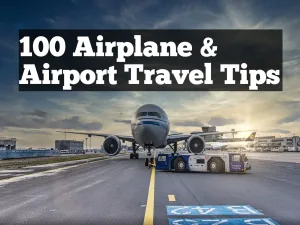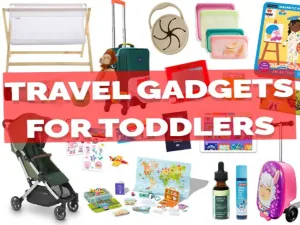Business travel tips can be efficient and stress-free by planning ahead and staying organized. Here are tips to make your trips smoother and more productive.
Whether it’s booking accommodations in advance, packing light, or keeping digital copies of important documents, these strategies will help you stay focused on your work engagement and navigate unfamiliar territories. Efficiently managing your time, prioritizing tasks, and taking care of your health and well-being are also crucial for a successful business trip.
By following these tips, you can make the most out of your travel experience and achieve your goals effectively.
Essential Pre-travel Planning
When it comes to business travel, proper planning is the key to a successful and stress-free trip. By taking the time to carefully consider your pre-travel preparations, you can set yourself up for a seamless journey and maximize your productivity while away from the office. In this section, we’ll discuss two essential aspects of pre-travel planning: researching visa requirements and travel restrictions, as well as booking flights and accommodations strategically. Additionally, we’ll cover the importance of informing colleagues and clients about your travel itinerary.
Researching Visa Requirements And Travel Restrictions
Before embarking on any international business trip, it is crucial to research and understand the visa requirements and travel restrictions of your destination country. Failing to do so may result in denied entry, unnecessary delays, and potential legal issues. To ensure a smooth travel experience, follow these steps:
- Check the official website of the embassy or consulate of your destination country to obtain up-to-date information regarding visa requirements and any travel advisories or restrictions that may be in place.
- If a visa is required, determine the type of visa you need based on the purpose of your visit (e.g., business meetings, conferences, negotiations). Also, identify the necessary documents and application procedures.
- Allow ample time for visa processing. Some countries may have lengthy processing times, so it is advisable to apply well in advance of your departure date.
- Additionally, be aware of any health-related requirements, such as vaccinations, that may be necessary for entry into certain countries.
Booking Flights And Accommodations Strategically
When it comes to booking flights and accommodations for your business trip, strategic planning can help you save time and money while ensuring a comfortable and efficient travel experience. Consider the following tips:
- Use fare comparison websites or apps to find the best deals on flights. Look for flexible search options that allow you to compare prices across different airlines and dates.
- Consider non-stop flights whenever possible to minimize travel time and potential disruptions.
- Opt for accommodations that are conveniently located near your business meetings or conference venues. This will save you valuable time and transportation costs.
- Look for hotels or serviced apartments that offer business-friendly amenities, such as free Wi-Fi, 24-hour reception, and business centers.
- Take advantage of loyalty programs or corporate discounts offered by airlines and hotels to maximize savings and benefits.
Informing Colleagues And Clients About Travel Itinerary
Keeping your colleagues and clients informed about your travel itinerary is essential for maintaining effective communication and ensuring a smooth workflow. Here are some important steps to consider:
- Share your travel dates and itinerary with key colleagues and stakeholders well in advance. This will allow them to plan their schedules accordingly and ensure that any important meetings or deadlines are not missed.
- Provide contact information where you can be reached during your trip, such as your mobile phone number or email address. Promptly respond to any urgent messages or requests to maintain trust and professionalism.
- If you will be representing your company at a business event or conference, inform your clients or potential partners about your presence and arrange meetings or appointments in advance.
- Consider using collaboration tools or project management platforms to keep everyone updated on the progress of ongoing projects and tasks while you are away.
By following these essential pre-travel planning tips, you’ll be well-prepared for your business trip and can focus on achieving your objectives without unnecessary stress or inconvenience.
Packing For Productivity
When it comes to business travel, packing efficiently is key to ensuring a productive and stress-free trip. By organizing your essentials, choosing the right luggage, and maximizing technology, you can stay focused on work while on the go. Here are some tips to help you pack for productivity.
Organizing Travel Essentials Efficiently
One of the first steps to packing efficiently is organizing your travel essentials. By categorizing items and using containers or packing cubes, you can easily locate what you need without wasting time rummaging through your luggage. Use the following table to create an organized packing checklist:
| Category | Essentials |
|---|---|
| Clothing | Business attire, comfortable clothes, underwear, socks |
| Toiletries | Toothbrush, toothpaste, shampoo, conditioner, etc. |
| Electronics | Laptop, phone, chargers, adapters |
| Documents | Passport, boarding passes, business cards |
| Work materials | Notepads, pens, files |
| Extras | Snacks, water bottle, travel pillow |
Once you have your packing checklist ready, arrange the items in your luggage according to their category. This way, you’ll have easy access to everything you need, saving valuable time during your trip.
Choosing The Right Luggage And Packing Techniques
Choosing the right luggage is essential for a productive business trip. Opt for a sturdy carry-on suitcase that meets airline regulations to avoid checked baggage delays. Additionally, consider using packing techniques that maximize space, such as rolling clothes instead of folding them. This not only saves space but also minimizes wrinkles. Utilize the following packing techniques:
- Roll clothes to save space and reduce wrinkles.
- Place heavier items at the bottom of the suitcase to prevent them from crushing lighter items.
- Use packing cubes or compression bags to organize and compact your belongings.
- Utilize the pockets and compartments of your luggage for additional storage.
By following these packing techniques, you can fit more items in your luggage while keeping them organized and easily accessible.
Maximizing Technology For Work On The Go
To stay productive while traveling, make the most of technology. Ensure you have the necessary devices and applications to work efficiently. Here are some technology tips:
- Carry a lightweight laptop or tablet that suits your work needs.
- Install productivity apps on your devices, such as note-taking tools, project management software, and communication apps.
- Bring portable chargers and adaptors to keep your devices powered up.
- Utilize cloud storage for easy access to important files.
By maximizing technology, you’ll be able to stay connected, manage your tasks, and complete your work effectively while on the go.
Staying Healthy On The Road
When traveling for business, it’s easy to get caught up in the hustle and bustle, neglecting our health in the process. However, maintaining a healthy lifestyle on the road is crucial for our overall well-being and productivity. In this post, we will explore some essential tips for staying healthy while traveling for business, including maintaining a balanced diet and exercise routine, avoiding jet lag and sleep deprivation, and managing stress to promote mental well-being.
Maintaining A Balanced Diet And Exercise Routine
It’s tempting to indulge in unhealthy food options and skip workouts while on the road, but sticking to a balanced diet and exercise routine can make a significant difference in how you feel during your business trips. Here are a few tips:
- Choose healthy options: Opt for nutritious meals that include lean proteins, whole grains, fruits, and vegetables. Avoid sugary and processed foods that can leave you feeling sluggish.
- Stay hydrated: Drinking enough water throughout the day is essential for keeping your energy levels up.
- Plan your meals: If possible, research and choose restaurants that offer healthy choices. Alternatively, consider packing your own nutritious snacks to avoid relying on fast food options.
- Make time for exercise: Schedule regular exercise sessions during your trip, whether it’s hitting the hotel gym, going for a run, or doing a workout routine in your room.
Avoiding Jet Lag And Sleep Deprivation
Long flights and different time zones can disrupt our sleep patterns, leading to jet lag and sleep deprivation. Here are a few strategies to minimize the impact:
- Adjust your sleep schedule: Gradually adapt your sleeping routine a few days before your trip to align with the new time zone.
- Stay hydrated: Drinking plenty of water can help combat the dehydrating effects of air travel, which can contribute to fatigue.
- Avoid caffeine and alcohol: Limit your intake of caffeinated beverages and alcohol as they can interfere with your sleep patterns and exacerbate jet lag symptoms.
- Stick to a sleep routine: Establish a regular sleep-wake cycle during your trip, even if it means adjusting your schedule to fit the local time.
Managing Stress And Promoting Mental Well-being
Business travel can be stressful and take a toll on your mental well-being. Here are a few strategies to manage stress and promote a healthy mindset:
- Practice deep breathing and meditation: Take a few moments each day to focus on your breath and clear your mind. Meditation can help reduce stress and improve mental clarity.
- Engage in leisure activities: Explore the local area and engage in activities that bring you joy, whether it’s visiting a museum, going for a walk in nature, or trying out local cuisine.
- Establish work-life boundaries: Set clear boundaries between work and personal time to prevent burnout. Carving out time for relaxation and self-care is crucial.
- Stay connected with loved ones: Maintain a support system by staying in touch with family and friends. Regular communication can provide emotional support and alleviate feelings of loneliness.
By following these tips and prioritizing your health while traveling for business, you can ensure that you not only stay productive but also feel your best every step of the way.
Effective Time And Expense Management
Effective time and expense management is crucial for business travelers who are always on the go. Streamlining travel logistics and itineraries, tracking expenses accurately and efficiently, and optimizing time management strategies are key components of managing business travel effectively. In this blog post, we will delve into each aspect and provide you with valuable tips for effective time and expense management during your business trips.
Streamlining Travel Logistics And Itineraries
Streamlining travel logistics and itineraries is essential for maximizing productivity and minimizing stress. Proper planning and organization can make a significant difference in your overall travel experience. Consider the following tips:
- Create a detailed travel itinerary that includes important information such as flight details, hotel reservations, transportation arrangements, and meeting schedules.
- Utilize travel management tools and apps that can help you manage your travel plans efficiently. These tools often provide features like flight alerts, hotel recommendations, and itinerary synchronization.
- Research and book accommodations near your meeting or conference venue to save travel time and expenses.
- Take advantage of online check-in and mobile boarding passes to save time at airports.
Tracking Expenses Accurately And Efficiently
Accurate expense tracking is crucial for budget management and reimbursement purposes. To ensure you stay on top of your expenses, consider the following suggestions:
- Maintain a digital or physical folder to store all receipts and invoices related to your business trip.
- Use expense tracking apps or software to record expenses on the go, making it easier to categorize them and generate expense reports later.
- Implement a clear and consistent system for organizing and coding your expenses, using categories that align with your company’s policies.
- Regularly reconcile your expenses with your credit card or bank statements to identify any discrepancies or missing receipts.
Optimizing Time Management Strategies
Time is a valuable resource for business travelers, and optimization is key. Consider the following time management strategies to make the most of your business trips:
- Create a schedule for your trip, allocating specific time slots for meetings, work tasks, and personal time.
- Prioritize your tasks and focus on high-value activities that contribute to your business goals.
- Minimize distractions during work hours by silencing notifications or using productivity apps that block certain apps or websites.
- Make use of downtime during travel by catching up on emails, reading industry-related articles, or preparing for upcoming meetings.
By streamlining travel logistics and itineraries, tracking expenses accurately and efficiently, and optimizing time management strategies, you can ensure that your business travel experiences are productive and stress-free. Incorporate these tips into your next trip and watch how they make a significant difference in your overall travel effectiveness.
Maximizing Productivity During Business Trips
Being away from the office on a business trip can sometimes hinder productivity. Disruptions to your usual routine, limited resources, and a different environment can all contribute to decreased efficiency. However, with the right strategies in place, you can maximize your productivity and make the most out of your business trips. In this article, we will explore some essential tips to help you establish a productive workspace, utilize technology tools for remote collaboration, and manage email and communication effectively.
Establishing A Productive Workspace In Hotel Rooms
Hotel rooms are often the primary working space for business travelers. However, they may not always offer the ideal conditions for productivity. To establish a productive workspace in your hotel room, consider the following:
- Choose a well-lit area: Prioritize natural light and position your workspace near a window whenever possible. Adequate lighting can help you stay focused and energized throughout the day.
- Use a comfortable chair and desk: Opt for a chair with good back support and a desk at the appropriate height. This will help maintain good posture and prevent discomfort during long working hours.
- Keep distractions at bay: Remove any unnecessary items from your workspace that may distract your focus. Clear the clutter and create a tidy and organized environment.
- Create a dedicated workspace: Designate a specific area of your hotel room for work. This will help separate your work life from your personal life and enable you to maintain a better work-life balance.
Utilizing Technology Tools For Remote Collaboration
Business trips often require collaborating with colleagues remotely. To ensure effective communication and collaboration, make use of technology tools. Here are some essential tools to consider:
- Video conferencing software: Platforms like Zoom and Microsoft Teams allow you to hold virtual meetings and conferences with your team members in real-time. These tools facilitate face-to-face communication and enable you to share screens and files effortlessly.
- Project management software: Tools like Trello and Asana help you track and manage tasks, set deadlines, and collaborate with your team efficiently. These platforms provide a centralized location to organize and monitor project progress.
- Cloud storage solutions: Services such as Google Drive and Dropbox allow you to store and access your files from anywhere. This ensures that you have all the necessary documents at your fingertips, even while traveling.
- Collaborative document editing: Platforms like Google Docs and Microsoft Office 365 enable multiple team members to work on the same document simultaneously. This encourages real-time collaboration and eliminates the need for constant file sharing and version control.
Managing Email And Communication Effectively
Effective management of emails and communication is crucial for maintaining productivity during business trips. Consider the following tips:
- Schedule specific time slots for checking emails: Instead of constantly checking your inbox throughout the day, allocate dedicated time slots to address emails. This method helps you stay focused on other tasks without getting overwhelmed by constant interruptions.
- Utilize email productivity tools: Tools like Boomerang and SaneBox offer features such as email scheduling, snoozing, and priority filtering. These tools can help you manage your inbox more efficiently and ensure that important messages receive the attention they deserve.
- Utilize instant messaging apps: Instead of relying solely on emails for communication, utilize instant messaging apps like Slack or Microsoft Teams. These platforms facilitate quick and efficient communication within teams, allowing for instant feedback and collaboration.
- Set clear communication expectations: Inform your colleagues and clients about your availability and response times during your business trip. Manage their expectations by setting appropriate boundaries and communicating your working hours and any potential delays in advance.
By establishing a productive workspace, utilizing technology tools for remote collaboration, and effectively managing email and communication, you can ensure that your business trips are not only successful but also highly productive. Incorporating these strategies into your routine will allow you to make the most out of your time away from the office and achieve optimal efficiency.
Networking And Building Relationships
Networking plays a crucial role in the world of business travel. It is not only an opportunity to exchange business cards and make small talk; it is a chance to build lasting relationships and create new opportunities. When business travelers embrace networking and focus on building relationships, they can expand their professional network, gather valuable insights, and enhance their career prospects. In this section, we will explore some tips and strategies to maximize networking opportunities, develop relationships with colleagues and clients, and overcome cultural and language barriers.
Making The Most Of Networking Opportunities
Networking events and conferences provide a unique platform for business travelers to connect and engage with industry professionals. To make the most of these opportunities:
- Be prepared: Before attending an event, research the attendees and speakers, and set specific goals for what you want to achieve.
- Dress professionally and confidently: Your appearance can leave a lasting impression on others, so dress appropriately for the occasion.
- Initiate conversations: Step out of your comfort zone and approach others with confidence. Start conversations by asking open-ended questions.
- Active listening: Show genuine interest in what others have to say. Pay attention, maintain eye contact, and respond thoughtfully.
- Exchange contact information: Be proactive in exchanging business cards or contact details, and make sure to follow up with a personalized email or LinkedIn connection.
Developing Relationships With Colleagues And Clients
Building strong relationships with colleagues and clients is essential for successful business travel. The following tips can help strengthen these connections:
- Communicate effectively: Clear and concise communication is key. Use both verbal and non-verbal cues to convey your message and actively listen to others.
- Show appreciation: Recognize and acknowledge the contributions of your colleagues and clients. A simple thank-you note or expressing gratitude in person can go a long way in building rapport.
- Be reliable and trustworthy: Deliver on your commitments and build a reputation for being dependable. Clients and colleagues value reliability and trust in their business relationships.
- Collaborate and share knowledge: Be open to collaboration and share your expertise with others. This can foster a sense of teamwork and improve professional relationships.
- Invest time in face-to-face interactions: In an increasingly digital world, face-to-face meetings provide an opportunity to build stronger connections. Whenever possible, schedule in-person meetings or attend company gatherings.
Bridging Cultural And Language Barriers
Business travel often involves interacting with individuals from diverse cultural backgrounds, sometimes facing the challenge of language barriers. Here’s how you can navigate through these obstacles:
- Respect cultural differences: Take the time to learn about the cultural nuances and traditions of the individuals you are interacting with. Show respect and sensitivity towards their customs and practices.
- Utilize language tools and resources: Familiarize yourself with basic phrases in the local language. Utilize online translation tools or hire a local translator to facilitate communication.
- Use visual aids and gestures: If language becomes a barrier, rely on visual aids, gestures, and body language to convey your message. Be aware of cultural differences in these non-verbal cues.
- Stay patient and adapt: Be patient when faced with language or cultural barriers. Adapt your communication style and be willing to find alternative ways to connect and understand.
- Seek cultural understanding: Approach interactions with a genuine desire to understand the culture and perspectives of others. This helps to bridge gaps and fosters positive relationships.
Safety And Security Considerations
When it comes to business travel, safety and security considerations should be at the forefront of every traveler’s mind. Implementing personal safety measures, protecting sensitive information, and navigating unfamiliar destinations safely are all crucial aspects to consider for a successful and worry-free business trip.
Implementing Personal Safety Measures
When traveling for business, it’s important to take proactive steps to ensure your personal safety. Implementing these personal safety measures can give you peace of mind and help you stay focused on your professional goals:
- Always carry a valid form of identification with you.
- Share your travel itinerary with a trusted colleague or family member.
- Avoid displaying expensive gadgets or flashy jewelry that can attract unwanted attention.
- Keep emergency contact numbers easily accessible on your phone or in a digital document.
- Use reputable transportation services and be cautious when hailing taxis on the street.
- Stay aware of your surroundings and trust your instincts in unfamiliar environments.
- Secure your belongings in a hotel safe or lock them securely in your luggage.
Protecting Sensitive Information While Traveling
Business travelers often carry sensitive information such as company secrets, client data, or personal financial records. To protect this information from falling into the wrong hands, consider the following security measures:
- Encrypt your electronic devices, including laptops, smartphones, and USB drives.
- Create strong and unique passwords for all your accounts and change them regularly.
- Invest in a privacy screen for your devices to prevent shoulder surfing.
- Use a virtual private network (VPN) to secure your internet connection when accessing sensitive information remotely.
- Avoid using public Wi-Fi networks and opt for more secure options, such as mobile hotspots or trusted hotel networks.
- Be cautious when sharing sensitive information, such as login credentials or credit card details, during phone conversations or in public spaces.
Navigating Unfamiliar Destinations Safely
Visiting unfamiliar destinations can be thrilling, but it’s essential to prioritize your safety while exploring new surroundings. Consider these tips to navigate unfamiliar destinations safely:
- Research your destination beforehand to familiarize yourself with local customs, laws, and potential safety concerns.
- Use reliable maps or navigation apps to plan your routes and avoid getting lost.
- Inform yourself about public transportation options and their safety records.
- Be discreet when using electronic devices in public to avoid becoming an easy target for theft.
- Keep emergency contact details and the address of your accommodations readily available.
- Stay in well-known and reputable accommodations that prioritize guest safety.
Making The Most Of Downtime
Business travel can be both exciting and exhausting. While your primary objective may be work-related, it’s essential to make the most of your downtime to ensure a well-rounded and enjoyable trip. Here are some tips to help you balance work and leisure effectively and make the most of your time away from the office.
Exploring The Local Culture And Attractions
Exploring the local culture and attractions is an excellent way to maximize your downtime during business travel. Immerse yourself in the unique experiences the destination has to offer. Take some time to research the local attractions, landmarks, and historical sites. Whether it’s visiting a local museum, exploring the vibrant markets, or trying the local cuisine, immersing yourself in the local culture adds a valuable dimension to your trip.
Make a list of must-visit places and attractions before your trip. Utilize your evenings or weekends to explore these places. You can also consider booking a guided tour to make the most of your time and learn more about the local culture from an expert.
Balancing Work And Leisure Time Effectively
One of the challenges of business travel is finding the right balance between work and leisure. It’s essential to prioritize your work commitments while also making time for relaxation and personal enjoyment. Here are a few strategies to help you strike the right balance:
- Define your top priorities and allocate specific time blocks for work-related tasks. Setting clear boundaries can help you maintain focus and productivity throughout the trip.
- Delegate tasks whenever possible. If you have a team back at the office, trust them with some responsibilities to lighten your workload.
- Take advantage of technology to stay connected and work efficiently. Utilize cloud storage, project management tools, and communication apps to ensure seamless collaboration with your team.
- Reserve designated leisure time in your schedule. Whether it’s a few hours in the evening or a day off, make sure to prioritize your well-being and give yourself time to relax and recharge.
Practicing Self-care And Rejuvenation
Amidst a busy work schedule, it’s crucial to prioritize self-care and rejuvenation. Business travel can be physically and mentally demanding, so taking care of yourself is essential to maintain productivity and well-being. Here are a few self-care tips for your business travel:
- Prioritize quality sleep: Ensure you get enough restful sleep to recharge your energy levels and stay productive.
- Stay hydrated: Travel can be dehydrating. Carry a reusable water bottle and drink plenty of water throughout the day to stay hydrated.
- Maintain a healthy diet: Try to make mindful food choices even when on the go. Opt for nutritious meals and incorporate fruits and vegetables into your diet.
- Stay active: Find time for physical activity, even if it’s just a short walk in the morning or evening. Exercise can help reduce stress and improve your overall well-being.
- Take breaks: Don’t forget to take short breaks during the day to relax, stretch, or enjoy a calming activity. Taking small breaks can improve focus and productivity.
Frequently Asked Questions On Business Travel Tips
How Can I Get The Most Out Of My Business Travel?
To get the most out of your business travel, plan ahead, pack efficiently, and research your destination. Stay organized by using travel apps, and make the most of your time by setting goals and prioritizing tasks. Network with colleagues and locals, and don’t forget to take care of yourself by staying healthy and getting enough rest.
How To Business Travel Like A Pro?
To travel like a pro, pack light, plan ahead, and streamline your itinerary. Use travel apps for bookings and organization. Stay productive and connected with a portable charger and reliable Wi-Fi. Finally, prioritize self-care by getting enough rest and staying hydrated.
What Is Most Important For Business Travelers?
The most important aspect for business travelers is efficient time management, reliable transportation, easy access to technology, comfortable accommodations, and excellent service.
What Do I Need To Know About Traveling For Business?
To ensure successful business travel, remember these key points:
- Plan ahead for convenience and cost savings.
- Pack efficiently and bring essential documents.
- Stay organized with itineraries and contact information.
- Utilize technology for seamless communication and productivity.
- Take care of personal needs for a smooth trip.
Conclusion
To make your business trips stress-free and enjoyable, follow these handy travel tips. Plan ahead, pack smartly, and stay organized to optimize your productivity on the go. Remember to prioritize self-care and maintain a healthy work-life balance. Embrace technology and leverage it to your advantage.
With these strategies in mind, you can ensure smooth and successful business travel experiences. Boost your efficiency, minimize fatigue, and make the most of your global ventures. Happy travels!
Also Read:











Thank you for your sharing. I am worried that I lack creative ideas. It is your article that makes me full of hope. Thank you. But, I have a question, can you help me?